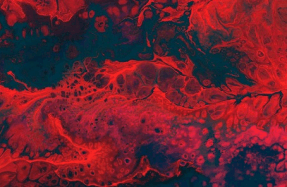“What is your specific lonely like?”
 Author photograph by Chelsea Bieker.
Author photograph by Chelsea Bieker. Okwiri Oduor first came to prominence in 2014, as the winner of the Caine Prize, Africa’s most prestigious short story prize. In her winning story, “My Father’s Head,” Okwiri’s narrator struggles to bring to mind a full image of her late father and listens instead to his obituary on the radio.
Now, in her first novel, Things They Lost, Okwiri veers around stretches of spectacular prose to explore themes similar to “My Father’s Head.” Things They Lost is the story of Ayosa Brown, a thirteen-year-old girl living in the fictional Kenyan town of Mapeli, which sits on land given by colonial authorities to Ayosa’s great-grandmother, Mabel Brown, an English settler. Ayosa and her mother, Nabumbo Promise, struggle to patch up their relationship, all while dealing with several secrets in their family. Ayosa makes friends who compensate for her mother’s absences — the Fatumas, faerie-like creatures who keep her company; Mbiu, a throwaway girl who has been abandoned by the town; and Sindano, a lonely woman who understands Ayosa’s struggles with her gift: Ayosa is omniscient and knows things that happened before she was born. It is a story about mothers and daughters, of daughters who become mothers to daughters who become mothers, and a story of girls who are abandoned and alone, of girls who find family in other lonesome girls.
It is also the story of how death permeates our lives. In the novel, people in Mapeli struggle to remember their dead, either by celebrating them on Epitaph Day, a special holiday for this very purpose, or by listening to radio obituaries, the announcer leading them in their sorrow.
There is a brazen Kenyan-ness in the text, the characters drinking brew at Mama Chibwire’s parlor and
You’re reading a preview, subscribe to read more.
Start your free 30 days





